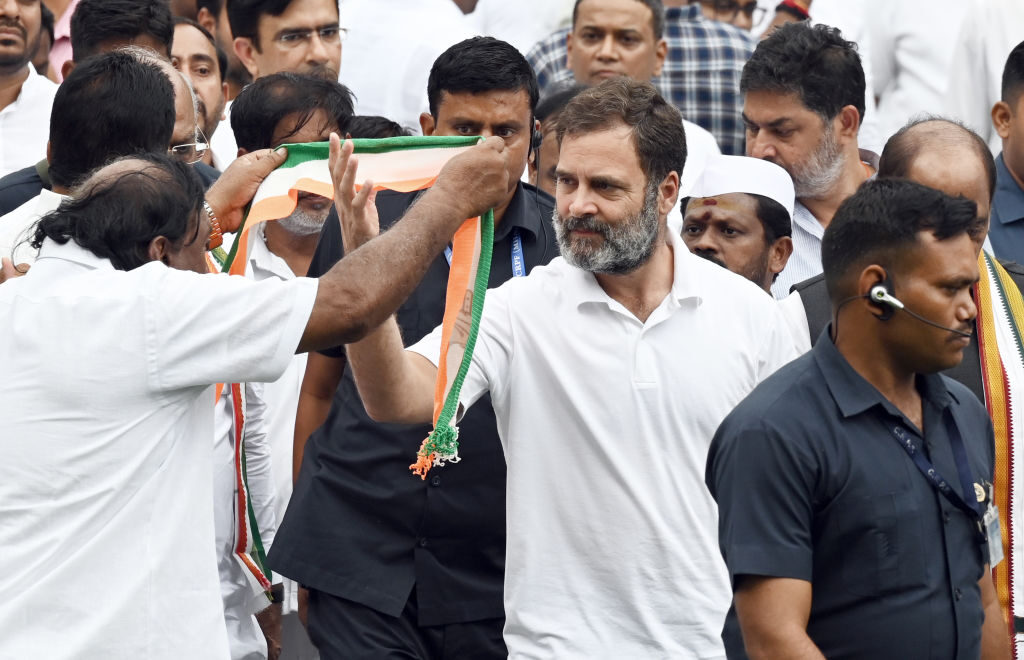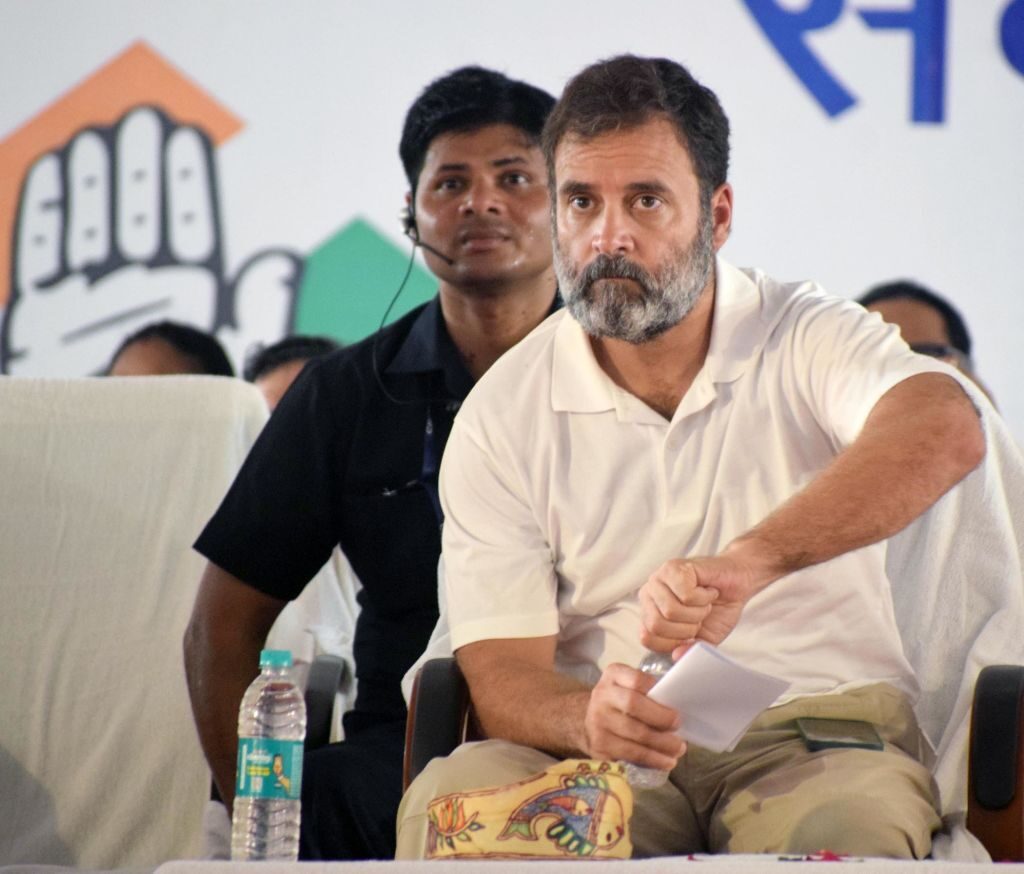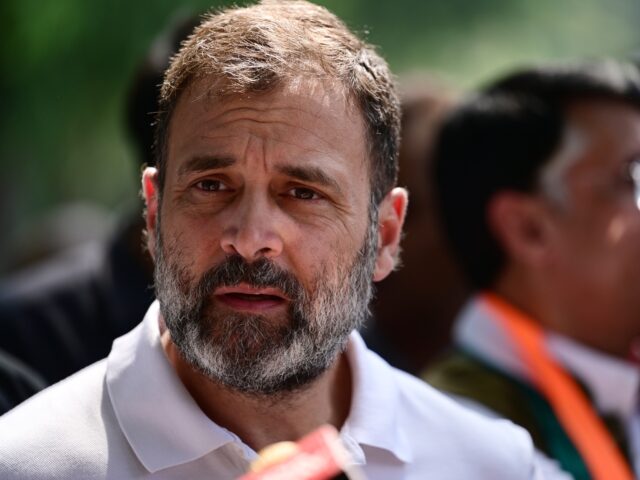Rahul Gandhi, leader of India’s opposition Indian National Congress (INC) party, announced Tuesday he will visit the conflict-torn state of Manipur on Thursday and Friday.
Manipur is the scene of an ongoing clash between a majority Hindu people living in the lowlands and nomadic Christian tribes in the hills.
“Manipur has been burning for nearly two months, and desperately needs a healing touch so that society can move from conflict to peace,” said INC General Secretary KC Venugopal when setting the dates of Gandhi’s visit.
“This is a humanitarian tragedy, and it is our responsibility to be a force of love, not hate,” he said.
Venugopal said Gandhi intends to “visit relief camps and interact with civil society representatives” while in Manipur. He will be the first opposition leader to visit the state since the ethnic clashes began. Another leader, West Bengal Chief Minister Mamata Banerjee of the Trinamool Congress (TMC), requested permission from the federal government on May 29 to pay a visit but received no response. Gandhi will visit without requesting permission.
Gandhi said he plans to open “shops spreading love” in the “market of hate” that has grown in Manipur, a colorful phrase that has become a popular INC political slogan.

Congress leader Rahul Gandhi during a meeting where several former Bharat Rashtra Samithi (BRS) leaders joined Congress, at AICC headquarters, on June 26, 2023 in New Delhi, India. (Sanjeev Verma/Hindustan Times)
As Venugopal indicated, violence broke out in Manipur in early May after the dominant Meitei majority, which comprises about 60 percent of the population of the state and is considerably wealthier than the many smaller tribes of the region, attempted to gain protected legal status as a “scheduled tribe.”
This enraged the mostly Christian tribal residents of Manipur, who receive certain job and land benefits from the Indian government thanks to their designated minority status. The Meitei argued that decades-old affirmative action programs for the tribes were consuming too much of the state’s land and budget.
Numerous old land disputes and ethnic animosities exploded as this debate grew more heated, leading to deadly violence, the destruction of homes, and the displacement of many residents into refugee camps. At least 80 people have been killed and over 40,000 displaced after 50 days of fighting.
Gandhi’s INC party, and other critics of Prime Minister Narendra Modi, accuse the Indian central government of not doing enough to quell the violence. On Sunday, the federal government publicly ordered Manipur Chief Minister N. Biren Singh, a member of Modi’s BJP party, to “work harder towards restoring lasting peace.”
Christians in India face persecution "in all areas of public and private life," according to a study by the Christian Aid group Open Doors. https://t.co/naXRBTMhKR
— Breitbart News (@BreitbartNews) January 17, 2021
“I have been asked to further open channels of communication with all the stakeholders so that we are able to bring permanent peace in the state,” Singh said after meeting with Home Minister Amit Shah.
Tribal groups lodged an urgent plea with the Indian Supreme Court to deploy troops in Manipur to restore order, but the plea was refused last week. The Meitei held a sit-in protest at state government offices on Monday and made a similar request for central government intervention against “narco-terrorists and illegal immigrants.”
One of the big Meitei complaints is that the hill tribes allegedly use their government-granted forests to grow marijuana and opium. Another is that the tribes bolster their numbers by helping migrants illegally cross the border from Myanmar.
“What is the intention of the government? The government should intervene to restore peace. Why is the government silent? Are we not citizens of India? Manipur is a small state but has represented India in many international sports, art, and cultures. Please do not neglect us, save precious lives and homes,” one of the Meitei protesters said.

Congress leader Rahul Gandhi during Abhinandan Samaroh at Sadaquat Ashram on June 23, 2023 in Patna, India. (Santosh Kumar/Hindustan Times via Getty)
Some of the demonstrators held placards reading “Hello Modi, Where Are You?” Under increasing pressure to resolve the situation in Manipur, Modi held an emergency meeting with his Cabinet and other high-ranking officials as soon as he returned from his trip to the United States and Egypt on Monday.
Modi’s Cabinet meeting reportedly covered the economic disruptions in Manipur caused by the fighting, including a fuel shortage, and discussed the possibility of a relief package for the conflicted state. However, the meeting ruled out invoking “President’s Rule” – essentially martial law, with a federal takeover of state government functions – for the time being.
Modi and his Cabinet also punted on the question of replacing Singh as Manipur’s chief minister, a change demanded by some opposition leaders.
The Hindustan Times quoted a source familiar with the meeting who said petroleum minister Hardeep Singh Puri was tasked with ensuring adequate supplies of cooking gas and fuel are delivered to Manipur. The fuel supplies will be “monitored and distributed by the territorial army to ensure there are no malpractices and no hoarding.”
Muslim extremists have carried out a door-to-door anti-Christian murder campaign, killing over 500 Christians since June. https://t.co/YKx9dyccLp
— Breitbart News (@BreitbartNews) September 14, 2020
INC leader Jiran Ramesh is one of the critics who demanded the “non-functional” Singh be sacked, along with “ineffective” Home Minister Amit Shah. On Tuesday, Ramesh accused Modi of remaining “silent” while Manipur burns.
“Every single minute Biren Singh continues as CM [Chief Minister] is a minute wasted towards efforts to bring peace and begin the reconciliation process in Manipur,” Ramesh said.

COMMENTS
Please let us know if you're having issues with commenting.